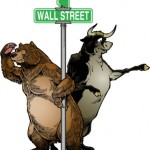 The US Federal Reserve didn’t mention about another round of quantitative easing in its latest round of FOMC meeting, leaving many disappointed. Do we really need another round of money supply in the economy? Or will that be the recipe for spiraling inflation, considering that energy prices have stubbornly remained high?
The US Federal Reserve didn’t mention about another round of quantitative easing in its latest round of FOMC meeting, leaving many disappointed. Do we really need another round of money supply in the economy? Or will that be the recipe for spiraling inflation, considering that energy prices have stubbornly remained high?
If Joseph Balestrino, fixed-income chief at Federated Investors is to be believed, the US economy can very well do without another round of assets purchase.
The economy is not on fire, but it’s not in bad shape either. The Fed had declared that QE3 was contingent on either the economy going backwards or inflation not rising, and Joe believes none of the conditions are being fulfilled now. He, however, believes that Fed chairman Bernanke may initiate another round of monetary expansion exercise in September.
But doesn’t the extra money in the system encourage better investor participation, since investors have been cautiously optimistic about the economy in general and about the recent stock market rally in particular?
Well, Joe believes QE 1 & 2 were not about buying bonds to drive interest rates down, but they were about pushing investors into buying higher risk asset classes. At best, it helped the economy from going backwards. However, interest rates now need to go up, albeit marginally. The Treasury market is now departed from the fundamental picture (the macro economy), mainly because of Europe.
The central banks have played a pivotal role in preventing disorderly default in recent times; and it’s no different in Europe or the US. We had seen the debt-ceiling negotiations going to the wire last year in the US, and the same event took place in Europe over Greece now. A disorderly default is never an option for the central banks, he observed. You can watch the video here.
Contact Ulli